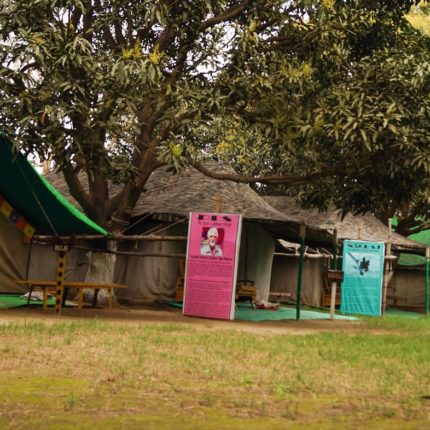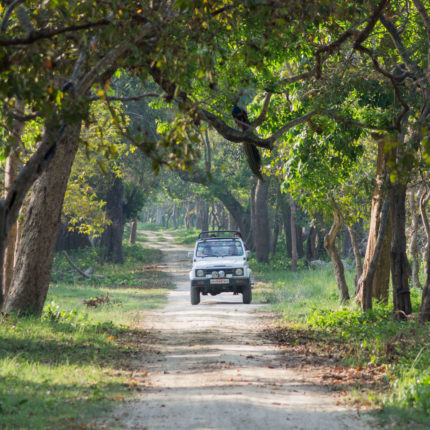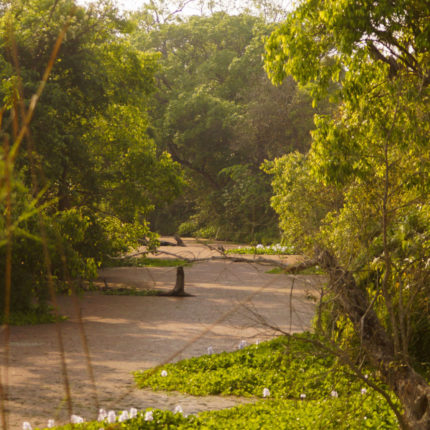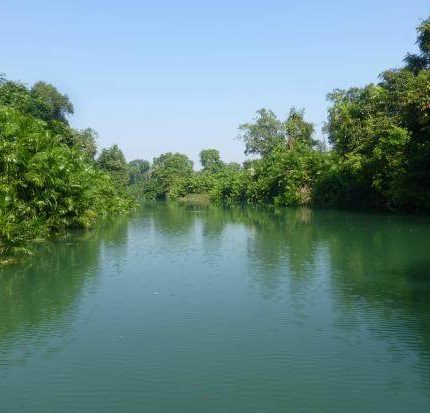Dudhwa Tiger Reserve, the virtually untouched paradise, lies on the Himalayan foothills on the Indo-Nepal border. It is the last remnant forest of the amazing Terai-Ecosystem, a magical mosaic of woodland, grassland and wetland habitats.
As we move past the Entry Gate, we are gulped into an enchanted kingdom guarded for miles by the mighty Sal trees. The cavern-like canopy of the woodland is awe-inspiring at daytime and spine-chilling as it gets dark. Under the cover of the apparent tranquility, “tigers lurk, cheetals hide, snakes writhe,”
An adventurous journey on the jungle tracks leads us to the other natural treasures of Dudhwa National Park: the Wetlands and Grasslands. Gazing upon the crystal clear water of the wetlands, we can watch in delight and ecstasy the best of wildlife: the swamp deer, the otters, the gavials, the crocs, thousands of winged visitors and majestic birds of prey.
The grasslands provide sustenance to the wildlife. Their beauty is best appreciated from 150 feet high watchtowers. From this vantage point, we behold the vast grassland spreading like a seamless carpet into the adjoining jungles. And the only thought that comes to the mind is if this is not paradise then what is!
The biodiversity and wildlife at Dudhwa Tiger Reserve are rivaled by few places on earth. Forty-seven species of mammals and Four hundred species of birds dwell in these habitats.
The legend of Dudhwa National Park would be incomplete without the Tharu tribals who still preserve a rich and vibrant culture.



















